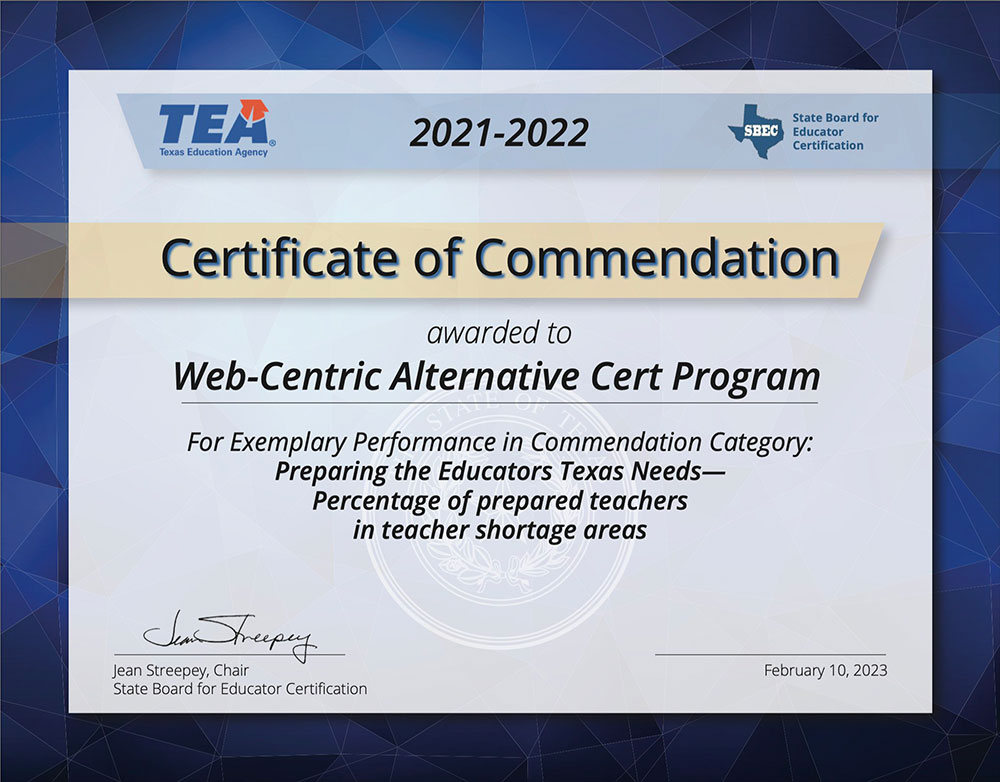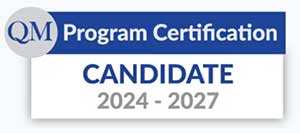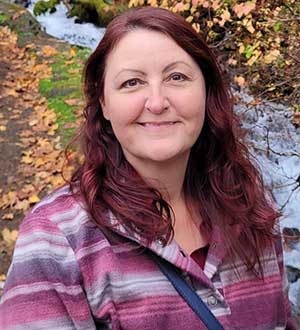Earn Your Texas Teacher Certification
Prepare to become a certified teacher in Texas with WCACP!
Our Impact Metrics
Discover the success of our online teacher certification program through key metrics.

99%
Pass Rate
20+
Years in Business
TEA
Fully Accredited
What Our Students Say
What Our Students Say
I highly recommend Web-Centric ACP for anyone looking to become a certified teacher in Texas. The program is top-notch!

Sarah T.
Certified Teacher
What Our Students Say
Thanks to Web-Centric ACP, I was able to achieve my dream of becoming a certified teacher in a fast and affordable way. Great service!

Jasmine H.
Certified Teacher
WCACP – Making Alternative Teacher Certification in Texas Accessible and Affordable
Helping you achieve your dream of becoming a certified teacher
Low Cost
100% Online
Fully Accredited
Award winning
Innovative
Discover the Web-Centric ACP Difference
At just $3,950 – WCACP is the lowest cost program in the state of Texas! (Paid in full price)
You also have the option to pay your fees over 12 months at 0% interest.
Experience an Affordable and Fast Route to Teacher Certification in Texas with Award-Winning Support!
What Our Current Teaching Candidates have to Say
Check out what our current satisfied candidates have to say about their experience so far with Web-Centric ACP!

Melvin H.
Web-Centric has been a great experience! I loved that I could go as fast or as slow as I needed because sometimes life gets in the way. The preparation for the tests was fantastic – I was able to pass all my tests the first time thanks to the guidance provided.

Kristin S.
I thoroughly enjoyed my courses with Web-Centric. Not only is the program convenient because it is online, but the instruction material is research based and cutting edge. The staff is incredibly supportive as well. I would definitely recommend their program for alternative certification.

Aaron S.
My experience with Web-Centric Alternative Certification Program was wonderful. I enjoyed the coursework, and I really enjoyed the feedback that I got from my webcentric mentors. I received a response to any question within 2 hours.
Certifications & Awards
Our Recognition by tEA

Quality Matters

The Quality Matters Program Certification process ensures that online programs and courses promote learner engagement and provide students with all the tools and resources they need to be successful learners.

Contact Us
832-220-3451
1-877-218-1843
Passionate Professionals
Get to Know Some of the Faces Behind Web-Centric ACP

Wendy Brasher
Admissions Director

Bonnie Jordan
Program Lead

Gilma Martinez
Certification Officer

Jennifer Brinkley
Customer Relations
Discover the success of our online teacher certification program through key metrics.
8k+
Certified Teachers
20+
Years in Business
30+
Certification Areas offered
100%
Customer Satisfaction



